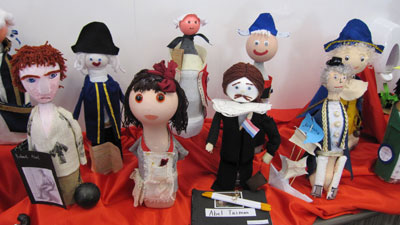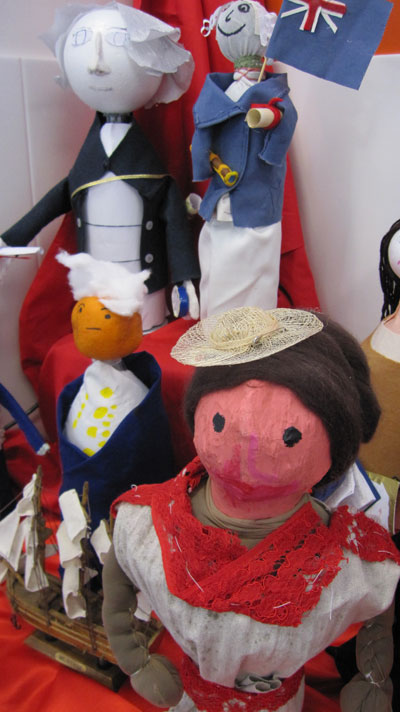Studying Shakespeare is an inevitable feature of modern adolescence, as his works remain a permanent fixture of the Western literary canon. Nevertheless, to immerse in his dramatic creations from the beginning of one’s school life may, to some, seem a luxury rather than a necessity, perhaps even a questionable venture, considering the torment of his tragedies and the controversy of particular plays that on first glance, may appear to offend modern sensibilities pertaining to racial persecution or subordination of women. Two questions therefore arise regarding our approach to Shakespeare at John Colet School: why perform Shakespeare annually from kindergarten upwards, and how does one deal with the hot topics arising from his works?
The rich legacy left by our most famous playwright is not always easily accessible. The sad fact is, that for most people, mention of Shakespeare elicits unpleasant memories of reading barely intelligible language and contrived literary jargon that likely had little lasting impact on their lives. It is safe to say that this will not be the case for the students of John Colet: for them, Shakespeare equals transformative experience, that stirs up excitement, interest, and a spirit of collaborative adventure. It is their enthusiasm that fuels and drives the whole theatrical project, which means teachers can direct their energy to crafting and perfecting the performances, to outstanding effect.
Through their annual return to the Bard’s plays, the students at John Colet are invited to become increasingly self-aware. A theatrical space in general acts as a crucible for mental and emotional growth. It allows each individual actor to test their mettle under pressure, forging better retention of information through the process of memorising and recalling lines, whilst also stretching the boundaries of selfhood, by adopting a variety of roles. By doing this in the formative years of childhood, theatrical acting facilitates greater self-understanding and stronger self-worth. This individual growth runs concurrently with the effects of collective unity on the acting cast, who come together to create a transient art form which will manifest and dissipate before the audience’s eyes. Such unity can be a rare experience in an age that has largely lost touch with the value of community endeavour.
A Shakespearean theatre space is elevated further still by the mastery of the playwright, evident in: the rhythms of his language; the psychological insights of his characters; the elegant shaping of his plot-lines; the combined qualities of simplicity and sophistication, bawdiness and elegance, humour and emotive power. Shakespeare trains both the body and the mind: one learns how to breathe properly to elicit the music of spoken language; how to use all the colourful nuances of the human voice; how to speak without speaking, through the gaze, through gesticulation, through the silence between words. Equally, one learns to reflect deeply on the whims of fortune, the brevity of mortality, the folly of decisions based on ambition or greed, injury or arrogance. We empathise with the tragic heroes, becoming less judgemental but more discerning in our engagement with humanity. Shakespeare elucidates how to live well, by unfolding in narrative the paths not to traverse, demonstrating their disastrous consequences. He recognises the endless appeal of the villain, but his moral message is always clear: those who live for self alone will never prosper.
So why might this far-sighted moral compass be called into question? Perhaps because the storylines contained within such plays as ‘The Tempest’, ‘The Merchant of Venice’ and ‘The Taming of the Shrew’ can provoke heightened feeling amongst those who would argue that Shakespeare is bound up with the patriarchal prejudices of his time. However, one has to step beneath the surface of story and engage with his presentation of character to gauge his true stance on the Patriarchy. In ‘The Tempest’, Prospero is presented as ruthless and destructive, in contrast with his empathic daughter Miranda, whose heart has not been tainted by the desire for revenge. In ‘The Merchant of Venice’, Bassanio is presented as over-privileged but ineffective, in contrast with the disempowered but ingenious heiress Portia, whom he is set to wed; while Shylock is presented as mobilised for revenge by the abusive hypocrisies of the merchant Antonio, who in contrast, is self-indulgently courting a gesture of self-sacrifice to immortalise himself in Bassanio’s memory. In ‘The Taming of the Shrew’, Petruchio is presented as perpetually arrogant, in contrast with Katherina, who eventually accepts the inevitability of her subjugation in an oppressive society in which women are only granted ‘straw lances’.
My aim as director of the Shakespeare plays at John Colet School, is to draw out and enhance the perpetual resonance of Shakespeare’s works with our times, by pulling at these threads of criticism aimed at all who would seek to tame, enslave, ostracise or abuse others. Through a continual reinterpretation of the setting, and a dynamic interplay with important voices of our own time, these apparent controversies transform into fruitful conversations about human ethics and philosophy. Shakespeare is a playwright for all ages and all Ages.
Claire Lilla
Drama Teacher and Director, JCS Shakespeare Festivals









